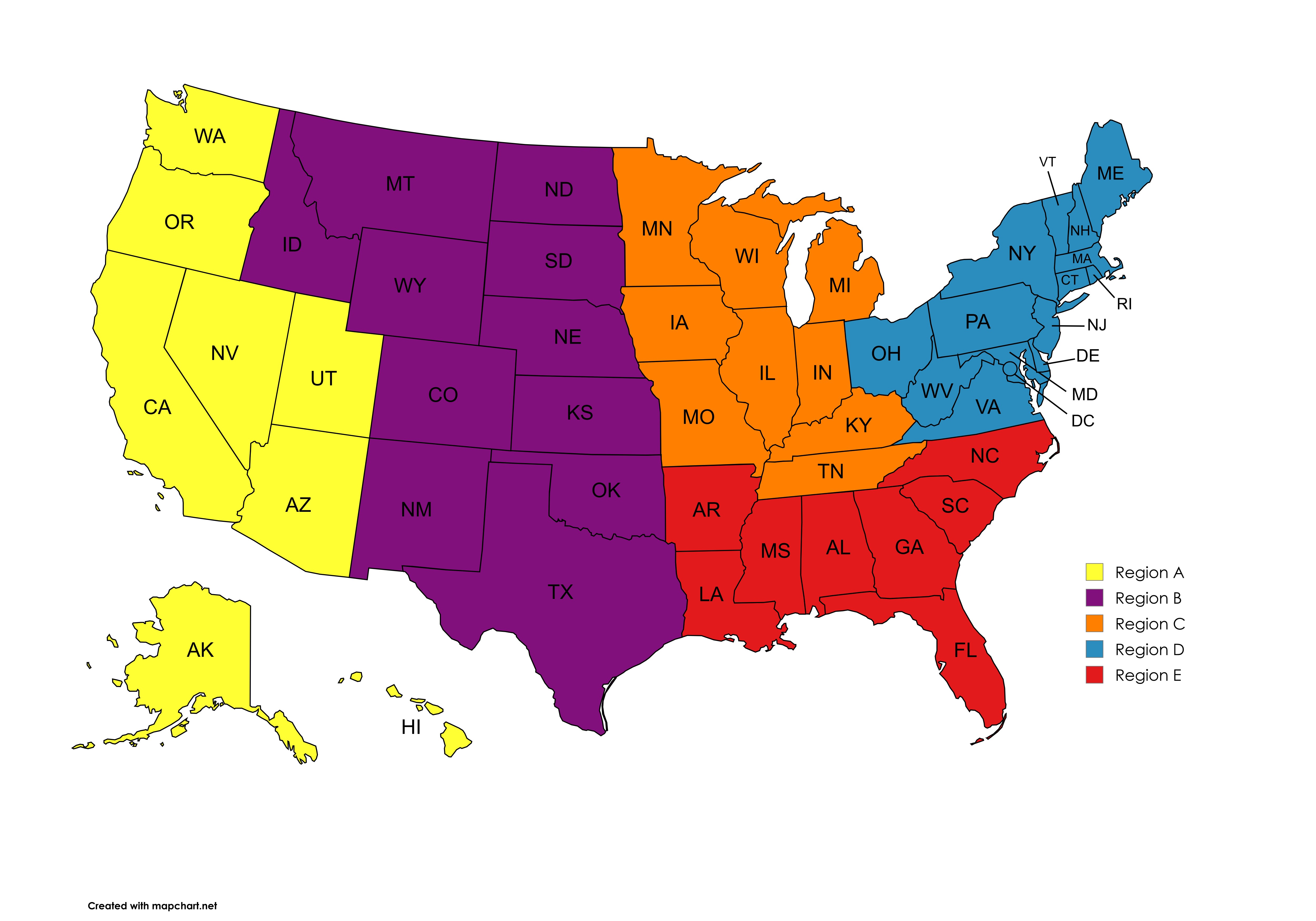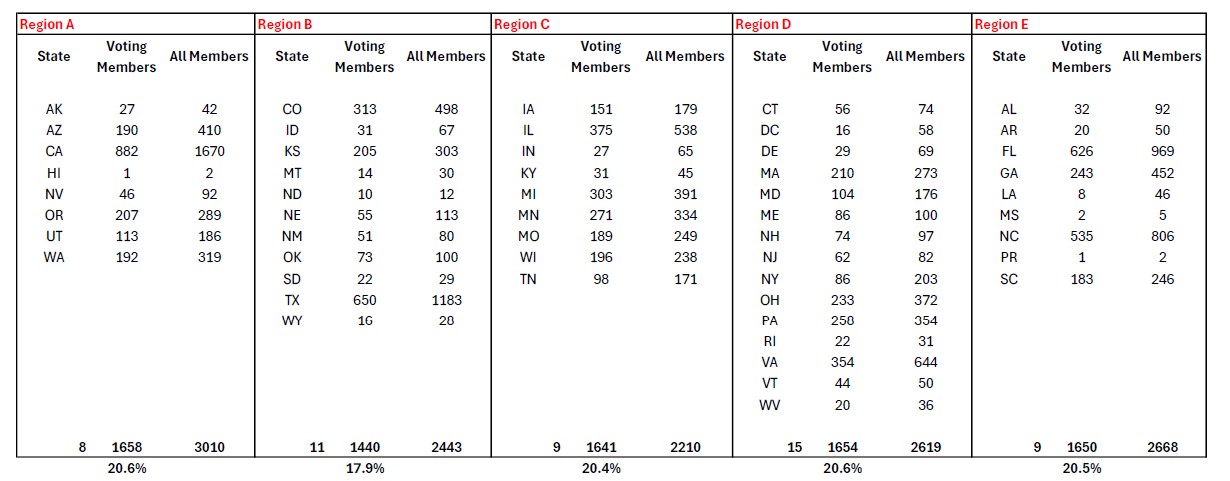ICMA's Governance Task Force was formed in August 2023 to review ICMA’s governance structure and regional representation. Its charge was to identify an appropriate structure to help ICMA be a more effective, diverse, inclusive, and global organization.
Over 22 months, the task force gathered input from various stakeholders to understand the current governance structure’s strengths and challenges. The task force's recommendations were designed to address these concerns and update ICMA’s governance process.
Regional Realignment
At its meeting in July 2025, the ICMA Executive Board approved the new regional realignment that effectively balances the five regions within the United States and continues international representation that is critical to ICMA’s global focus. ICMA’s regional directors and staff will work with state associations in early 2026 to develop new regional nominating agreements to implement the realignment, which will take effect with the 2026-2027 Nominations and Elections cycle.

This new regional map makes the following changes to ICMA’s existing regions:
- Changes to an alphabetical, rather than geographic, naming convention for regions.
- Moves Utah and Arizona to “Region A.”
- Moves Kentucky and Tennessee to “Region C.”
- Moves Ohio, Virginia, and West Virginia to “Region D.”
- Moves Arkansas to “Region E.”
The ICMA Constitution assigns the ICMA Executive Board the responsibility to “change the boundaries of the regions in order that all regions may contain approximately equal numbers of Corporate (voting) members.” The last time that regional realignment was conducted was 1973, when ICMA had 2,573 Corporate (voting) members. With the growth in ICMA’s membership, the regional membership has become unbalanced.
- There are now over 8,000 U.S. Corporate members.
- The largest region (Southeast) comprises 26.5% of ICMA’s Corporate membership.
- The smallest U.S. Region (Northeast) comprises only 13%.
- The Mountain Plains region comprises 21.9%.
- The Midwest region comprises 21.7%.
- The West Coast region comprises 16.8%.
- The new regional realignment achieves greater balance between the composition of ICMA’s U.S. regions. Four of the five regions have slightly more than 20% of the membership, with the smallest region containing nearly 18%.

Changes to the Petition Process
In addition to the realigned regional map, the board approved changes to the petition process. Currently, petitions are only required for those candidates who want to have the option of appearing on the ballot if not selected as their region’s nominee by their Regional Nominating Committee. Effective with the 2026-2027 Nominations and Elections process, all candidates will be required to submit a petition in order for their application to be considered by the Regional Nominating Committee. Regional Nominating Committees will continue to interview all candidates and recommend a single nominee to appear on the ballot, and candidates not selected by their Regional Nominating Committee will then have the option to appear on the ballot by petition.
Special Election on Governance Changes
The board also approved placing the following issues on a Special Election Ballot for approval by ICMA’s voting membership:
- A measure seeking membership approval to change the term “Corporate member” to “Voting member” (and "Noncorporate member" to "Non voting member") and directing staff to revise all Constitutional language (and language in other ICMA documents) to reflect this change, if the measure is approved.
- A measure seeking membership approval to eliminate the designated non-CAO seat in each U.S. region and, if approved, directing staff to revise Constitutional language to indicate that affiliate members with five years of local government experience and five years of membership in ICMA are eligible to seek nomination for the seat in their region’s rotation that is open to candidates from their state.
- A measure seeking membership approval to change the language in Article IV, Section 1, regarding the board’s responsibility to conduct regional realignment to state: “The Executive Board shall, at least once every ten years, review the composition of the Board to ensure that the overall governance structure facilitates a Board that is representative of the voting membership.”
- A measure seeking membership approval for “Constitutional cleanup,” which will be a set of tracked-changes language updates to the Constitution that include removal of reference to specific numbers of regions/seats within a region to allow for greater flexibility to adapt the governance structure over time, clarification regarding the handling of unexpired terms and eligibility to serve as president-elect, and updates and modifications to language to reflect current practice.
The Special Election Ballot will launch on November 4, 2025.
New, Reduced Membership Dues
A new, reduced dues rate is available for CAOs/ACAOs, along with additional discounts for those in smaller communities, has been implemented. Learn more and be sure to join or renew today!
